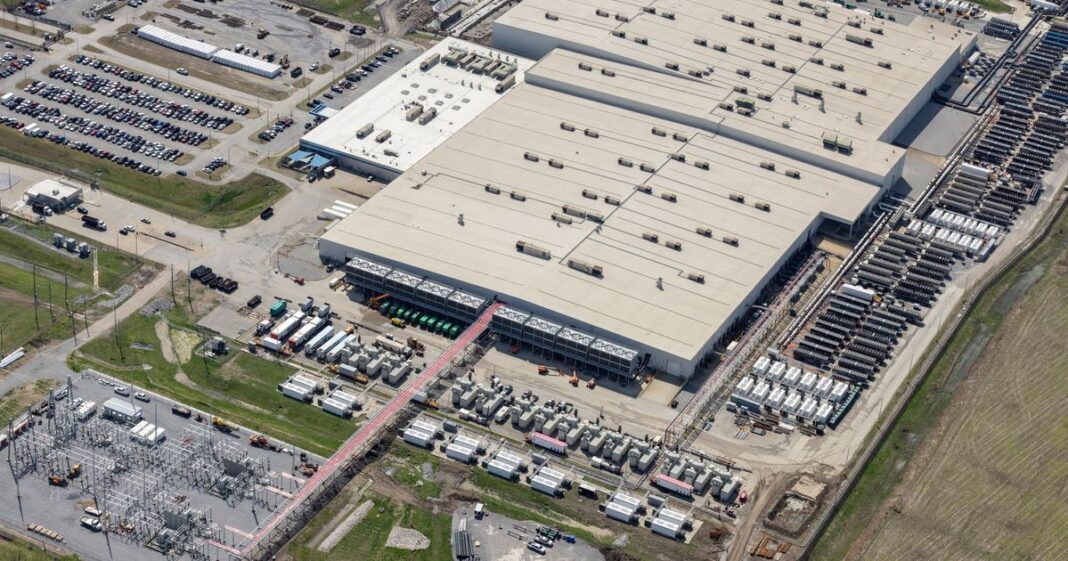Technoecologies: Navigating the Intersection of Technology and Environment
In November 2025, the discourse surrounding technoecologies continues to expand, delving deep into the intricate relationship between technology, environment, and socio-political dynamics. Technoecologies encapsulate how technological advancements interact with ecological systems, shaping both the environment and human communities. This exploration is particularly pressing, given the rapid proliferation of data centers and artificial intelligence (AI) infrastructures, especially in regions like the U.S. South, where they are profoundly influencing local ecosystems and social structures.
The Rise of Data Centers in the U.S. South
The “Data Boom” in the U.S. South represents a significant trend characterized by the explosive growth of data centers that consume vast amounts of energy and resources. As detailed by the Southern Environmental Law Center, this trend raises numerous environmental concerns, particularly in communities that historically bear the brunt of industrial pollution. [1] Data centers are often strategically located near power sources but can result in increased greenhouse gas emissions and environmental degradation in surrounding areas.
This boom is not only a technological phenomenon but also a socio-environmental crisis, as communities throughout the South, such as Memphis, are witnessing ecological impacts. Memory of the struggles faced by local neighborhoods, especially marginalized communities, intertwines with the rising tide of technological infrastructure. Reports of air pollution and health risks are now common as data centers intensify existing environmental challenges, illustrating a legacy of environmental racism that impacts the health and well-being of black neighborhoods in the region. [2][5][6]
Environmental Racism and AI
The intersection of AI and environmental issues has revealed stark realities regarding systemic inequalities. The deployment of AI technologies often disproportionately affects marginalized communities, perpetuating environmental racism. For instance, Elon Musk’s data company xAI in Memphis has faced backlash over air pollution and environmental permits, showcasing how the expansion of technological infrastructure can escalate local health crises. Activists and community leaders argue that the concentration of data centers can lead to a “toxic burden” for neighborhoods that are already vulnerable to industrial pollution. [5][13]
Community responses reflect a growing awareness and resistance against these injustices. Grassroots organizations are mobilizing to advocate for clean air and environmental justice, framing the battle against data centers as not just a local issue but part of a broader struggle against techno-capitalist expansion. Such activism charts a hopeful trajectory, albeit amidst significant corporate interests that often overshadow community welfare.
The Energy Demands of AI
The insatiable hunger for energy in AI models raises alarming questions about sustainability. Reports indicate that generative AI requires staggering amounts of electricity, leading industry experts to warn against the environmental costs associated with excessive energy consumption. [15][17] The International Energy Agency forecasts that the demand for energy from AI may outpace the availability of renewables, further complicating the push for a sustainable future.
This situation is exacerbated by the construction of additional gas power plants to meet these energy needs, underlining a worrying cycle of pollution and resource depletion that disproportionately impacts local ecosystems. Moreover, data centers’ reliance on fossil fuels reveals how technological advances can intersect problematically with environmental policy, especially when regulatory frameworks such as the National Environmental Policy Act are circumvented to accommodate AI infrastructure. [20]
Socio-Economic Impacts
The socio-economic implications of this technoecological landscape are profound. As data centers proliferate, they are seen not merely as technological assets but as engines driving local economies, albeit with strings attached. The notion proposed by cognitive scientist Hagen Blix that AI acts as a “wage depression tool” rather than a productivity enhancer sparks critical conversations about labor rights in this rapidly evolving context. [12] The precarious conditions under which many involved in tech production operate often remain hidden from mainstream narratives surrounding technological progress.
Moreover, urban landscapes are increasingly shaped by this technoecological model, as the construction of data centers outpaces that of traditional office spaces, creating unique architectural and economic scenarios. [23] The effects extend to architectural firms and construction industries, leading to a temporary economic lifeline that masks underlying inequalities and sustainability concerns.
Policy Responses and Future Directions
As the complexity of these technoecologies unfolds, policymakers must urgently reconsider their approaches to technology and environmental governance. Striking a balance between fostering growth and safeguarding communities requires nuanced understanding and responsive regulation. The current political climate emphasizes deregulation, posing challenges to environmental protection. This regulatory landscape reflects a prioritization of economic growth over ecological sustainability, revealing conflicts between technological ambition and public health.
Communities facing the consequences of rapid data center growth must have a voice in shaping these policies. Innovations in community engagement, informed by activist scholarship, can support informed decision-making and accountability in the tech sector. In response to overwhelming external pressures, community organizing will play a crucial role in advocating for equitable and sustainable practices.
In this intricate dance between technology and ecology, the lessons learned from the U.S. South may resonate widely, urging a more environmentally conscious approach to future technological efforts. The dialogue surrounding technoecologies promises to evolve, emphasizing the critical intersection of justice, sustainability, and technology in shaping resilient futures for all.



